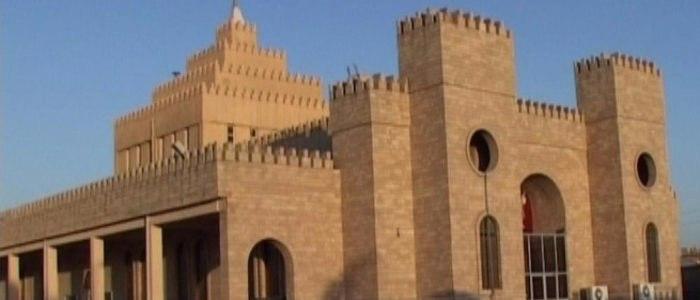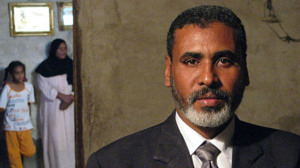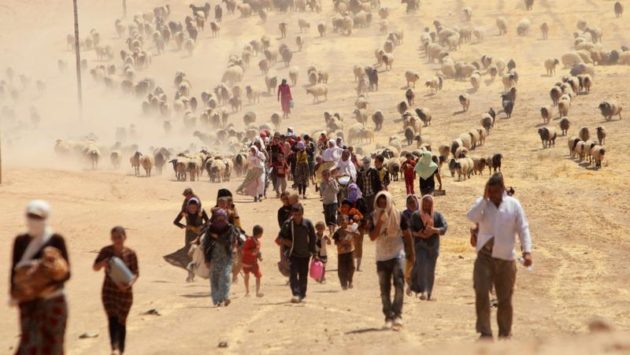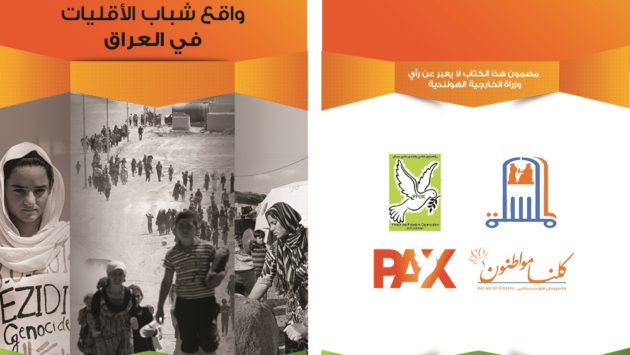Minorities in Iraq
A recent TV drama deeply touched viewers by exploring the brutal crimes committed by Daesh against a number of religious and national minorities, bringing the debate over minorities once again into public consciousness.
Has ‘the minorities problem’ ended with the end of Daesh, or is their protection and the preservation of their rights still a problem Iraq faces as it engages in the process of building the modern Iraqi state? Is the diversity of religions, ethnicities and cultures a source of strength or a weakness for the country? Is it still possible to create a future where Iraqi minorities have a valued place in Iraq?
All these questions were discussed in a webinar organized by the Nineveh Peace Forum, part of the Nonviolence and Peacebuilding masar of the Iraqi Social Forum. This webinar is one of a series of webinars that deal with the issue of protecting minorities, and was attended by a group of 72 activists and media representatives from various minority groups both inside and outside Iraq.
The webinar took up a number of topics, one of which was the correct designation of individuals belonging to different religious, racial and ethnic groups when navigating legal and security issues. Determining what to call various groups, whether for instance to use the term “components” or “minorities.” occupied participants for some time. Ultimately, it was decided that the term “minority” is best because of the benefits it provides due to its historical roots and ongoing usage. There are already many international treaties, agreements and international law which refer to and aim to protect “minorities.” However, the term also has certain negative connotations, it might be understood as an insignificant number that doesn’t impact in the nation, its policies nor the directions it will take in the future.
The term “components” may seem to do more to eliminate the distinction among various groups living in the country based on a hierarchy, and instead recognize that all groups are equal “components” within a larger, richer Iraqi national unity.
However, the reality of the situation suggests something quite different. For the past few years, despite the use of the term “components” the majority has remained dominant, while the minority, marginalized. Thus, the new term has not helped them to be more active and effective participants in drawing, managing and directing the country’s policy. On the contrary, renouncing the term “minority” seems to have renounced the rights guaranteed to it historically and legally.
“All Iraqis are a minority. This is a fact that we live out on a daily basis, and this is what we saw in the October Revolution. When the state is guided by a regressive and backward mentality, there can be no clear vision nor consensus from the state which might lead to the formation of an inclusive identity,” said Professor Walaa Ali Muhammad of Tammuz Organization for Social Development.
The webinar also discussed whether pluralism is a source of strength or weakness for Iraq, and it called into question whether, as a unified country, Iraq is now in a position to educate the new generation of Iraqis about minorities in a standard school curriculum. It also considered whether it would be right to create a special force to protect minorities from minorities themselves.
In a society riven by religious and sectarian conflicts, one might see pluralism as a weakness. Yet, it can also be a source of strength if there is genuine equality among all citizens. But equality seems unachievable in the foreseeable future so long as constitutional and statutory legislation distinguishes between them. For example, the state’s official religion is Islam (Article 26); the Unified National Identity Law states, “In the event of Islamization of one of the parents, any children who minors will also become part of the Islamic religion” These examples indicate that pluralism will remain a source of vulnerability until Iraq is a civil state, a state of institutions, a state of citizenship.
Civil activist, Saad Baktash, a Shabaky (a minority group in Iraq), commented, “Currently, minority citizens are exposed to political bargaining and clear marginalization by the state. We have yet to see a serious attempt on the part of the government to compensate minorities for the discrimination and abuse they have endured (including kidnappings and other rights’ violations) and this negatively affects minorities now living in Iraq.”
Have the problems of minorities ceased with the end of Daesh? Or, is the question of minorities, their protection and the preservation of their rights still a problem facing the country as it engages in the process of building the modern Iraqi state?
Daesh, as a military terrorist organization, may cease to exist, however, the mindset and ideology still exists in the minds of many. The threat to minorities, both military and intellectual, will persist as long as there is nothing official in place to deter those who wish to sow disorder.
Mr. Raafat Khurshid, from Bashiqa, Director of Together for Sustainable Development organization commented, “The problem of losing confidence and a lack of security are challenges facing minorities in Iraq. If we consider the Yezidis, there is still a fear of returning to their homes despite their liberation, and this is due to the loss of confidence in the defense system in place to protect them. Unfortunately, we see indications of a reverse displacement due to the unstable conditions that pose a direct threat to minorities.”
A clear study of the lives of minorities on the ground from 2003 until the present reveals conclusively that the threat to minorities did not arise with the coming of Al-Qaeda and Daesh, but started years before. The emptying of Basra of Christians preceded the emergence of Al-Qaeda and Daesh, and in Baghdad the threats, theft from, killing of and seizure of Christian property has nothing to do with al-Qaeda and Daesh. For many years now, minorities have been threatened with extinction in Iraq.
The speakers at the webinar stressed an important point pertaining to the academic curricula and the need to change them starting with early elementary grades and extending to graduate studies. Schools must pay great attention to the many groups that make up Iraq and get to know them (their nationalities, religions, beliefs, customs, traditions, etc.). A focus on this rich diversity might help to rid the next generations of the extremist ideas that persist in some segments of the population today, Changes in what is taught in school can become an effective instrument for lasting political change.
The webinar came up with several observations, the most important of which are:
1. An agreement to use the term “minorities” as it is the strongest legally, and it is a term already used in laws, covenants, international treaties, declarations and norms. It is connected to international standards and can thus help to ensure that minorities have their rights protected like all others in the country, and cease to be seen as the least common or least valuable. Some may continue to have problems with this term, that is, those who understand it it only in terms of its literal numerical meaning.
2. Recognition that cultural, religious, racial and ethnic diversity is a strong and enriching characteristic of Iraq’s population and can aid to its flourishing, whether in the political, economic or societal realm.
3. Everyone is affected by violent extremism, but the impact of extremism on minorities has become more apparent because of their low levels of representation in the country, some minority groups are threatening to leave Iraq permanently due to the violence they endure. Lack of justice and equal opportunities are two factors that produce violent extremism, as well as discriminatory political performances, hate speech, and the difficult economic situation — violent extremism is not limited to terrorist groups.
4. There is a constitutional problem — Article A2 — which states that Islam is the source of legislation. The legal problems prevent many minorities from having their due rights, even though Iraq has signed all international treaties on human and minority rights. The problem lies at the level of local law, which too often does not agree with either the constitution nor the treaties signed by Iraq.
5. There has been a failure to apply the law against hate speech and extremism despite the existence of valid laws, including the Iraqi Penal Code No. 111 of 1969.
6. Minority areas, in particular the Nineveh Plain and Sinjar Plain, have become areas of regional, international and internal conflict, and are fertile ground for disagreements among minorities living there. These conflicts must be resolved in a way that reach people as they live their everyday lives on the ground.
7. Minority rights in any country are connected to three criteria: A- Protection of identity and existence, B- Equality and non-discrimination C- Effective political participation.
8. There is no political pressure from minority representatives towards effective solutions to minority problems. The majority of minority representatives in the Federal Parliament and the regional legislatures belong to the large political blocs. Curriculum modification might help to resolve this issue.
9. The quota system which was not followed and implemented as was intended due to the dominance of majorities in the quota seats and also the lack of veto power for minority representatives on those issues that directly affect them. The Municipalities Import Law is a model of the failure of the quota system to ensure that minority groups got their due rights.
10. The solution for minority communities when voting in elections is to create a special register of voters for the quota seats and to choose their representatives, but not others.
11. Though there has been work done on Article 125 in the past — a draft of the Protection of Minorities Law and a draft of the Law on Protection of Diversity and Prevention of Discrimination had a first reading in Parliament — the second reading was disrupted so there needs to be more pressure in this direction.




